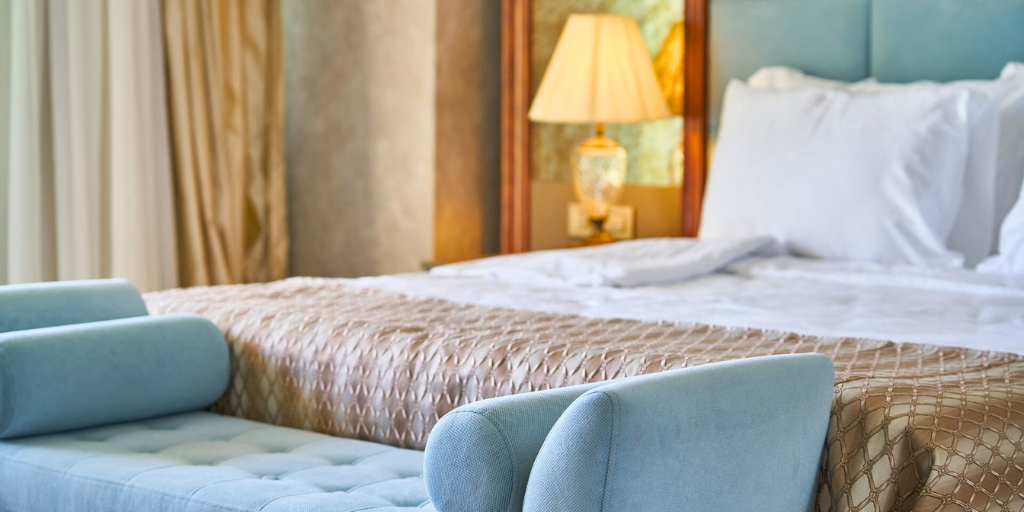The unprecedented challenges presented by 2020 have forced seasoned hoteliers to take one of two routes in order to cut losses, either shut down operations for the year, or keep their doors open by taking an alternate route to hospitality.
Restaurants have always been a reliable source of auxiliary revenue for hotels, and depending on how creative the hotel owner, a strong marketing tool. A good restaurant can be a potent attraction for culinary tourists, locals in search of a niche dining experience, or business departments in charge or organizing corporate events for investors and the like.
Within the context of the COVID-19 pandemic, restaurants are also one of the few experiences the general public feels comfortable with engaging socially. As such hospitality providers have found creative ways to optimize this revenue source by broadening the scope of their restaurant services
1. Reinventing Hotel Dining
Some traditional hotel dining practices such as the breakfast buffet now pose a health risk for guests and an alternative is needed. If an upgrade to the dining premises is possible, a food-court style breakfast can easily replace the buffet, without changing much of the breakfast dynamic of your guests.
As long as your staff is properly equipped, all dishes are kept in covered containers, and there is the mandatory plastic screen separating guests from the food, then guests can be certain that you have taken every precaution possible to keep them safe while serving them.
An upside to switching to a cafeteria service is the fact that guests are less likely to ravage the buffet. Some might go back for a second dish, but most diners would try to avoid scrutiny by going back for another one after that. With less food being consumed, the fewer guests will loiter in the dining area for prolonged periods of time.
Private events are another great way to attract potential diners, and since we are talking about a hotel's restaurant the options are slightly more varied than those of traditional hotels. You can offer a package for a dinner party at one of your more high-end suites. Obviously the price would extend to renting out the apartment itself, but only for the duration of the dinner party. Some restaurant staff can be assigned exclusively to serve the guests of this suite, serving a special menu only offered for this particular dining experience.
If your hotel is not catered towards upscale events you still have various other options at your disposal. Al-fresco dining is extremely popular nowadays, and it lends itself to a more rustic approach to service. If the post-pandemic recession has left you short-staffed, consider more minimalist cuisine choices. Strip down the menu to the most popular items, use local vendors to supply you with fresh ingredients, and prepare the food on live-fire if possible. With guests enjoying spending time outdoors, watching as their food is being prepared, you are looking at some great publicity in terms of reviews and social media posts.
2. Cuisine To Go
Some hotels might not have a large garden or upscale apartments to upsell during this recession, but there are other ways in which they can capitalize on their dining services.
The convenience of being able to order from any restaurant you choose and then just picking up your order while going about your daily business has always been a reliable way for restauranteurs to save time on service, and it is now one of the more reliable ways for hotels to keep their footing.
Hotel restaurants are as a rule not known for a great choice of dining options, unless it is something quite upscale, this has pushed hoteliers to find interesting ways to present their dining options. Various packages or boxes can be marketed to diners, such as family breakfast sets, lunch boxes, brunch baskets, or cook-your-own meal sets.
With people increasingly taking up cooking at the comfort of their own homes, the last option has become quite popular. They can order a recipe from your restaurant, and receive a box containing the ingredients it takes to prepare the meal, in the exact measurements needed while also containing the instructions for preparing such meals. This is already an established practice across the world, with various companies accommodating people’s need for a home-cooked meal, but cutting away the time-consuming preparation stages.
3. A Cooking Experience For Guests Of All Ages
Hoteliers are always on the lookout for events which can easily be accommodated within the practices of their own hotels, as a way to increase revenue, and encourage longer bookings. As such many hotels now offer some form of cooking class which focuses on a single dish or technique. Classes can be held several times a week and guests can choose to sign up for a fee. If you can entrust these courses to your hotel restaurant’s chef or their su-chef then you may not need to look for outside help.
5 Tips for Cutting Down Food Costs - Hospitality.net
A similar event can be organized for children with a more simple concept, such as decorating already baked goods, or learning some simple baking techniques. Couples with small children are more than likely to take up any such opportunity to keep their little ones busy while they enjoy their stay.
4. 24 Hour Room Service
Guests have been asking for a full-time room service experience for years, but many hotels have pushed back, as the expense of running a kitchen and supporting overnight reception staff simply does not make up for the revenue it would bring.
Can Hotels Cement Their Place In The New Remote Working Culture?
With remote working now mainstream, hotels are increasingly offering empty rooms as individual office space for the day
That said, with the advent of hotel technology,restaurant chains have adapted to such requests, and so when your guests want to order food after your kitchen has closed for the night they simply click on the Dominos' app instead. Hotel self-service apps allow you to take back this source of revenue with greatly reduced expense.
Along with the full host of services you provide, your hotel app holds your full menu, and guests can order at their leisure. A simple way of avoiding having an overning kitchen, would be to have a special off hours menu, containing items that can be quickly assembled by the overnight personnel, or premade meals that can be microwaved and at your guest’s suite within minutes.
The self-service app is fully supported by your property management system so any changes your staff makes to inventory will instantly be updated in the app. Consider how much such a feature can change the way guests view your hotel in general. You are now accommodating their requests 24/7 without breaking a sweat.


